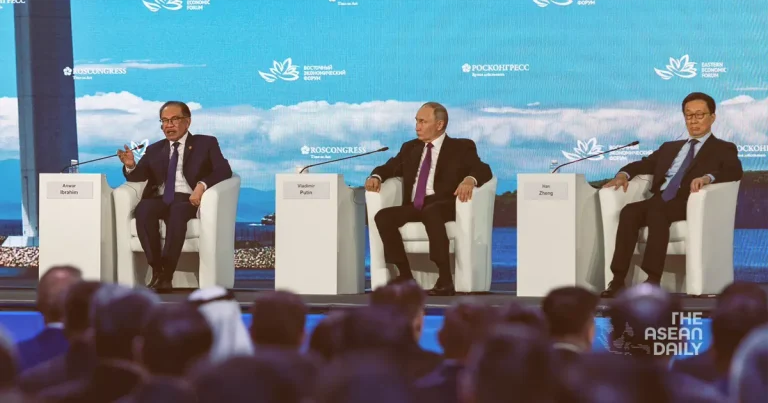17-10-2024 (TOKYO) In a move that has raised eyebrows in Tokyo, Malaysia and Thailand have submitted applications to join the Brics group of emerging economies, signalling a potential shift in the delicate balance of diplomacy in Southeast Asia. This development has prompted concern among Japanese officials and analysts, who fear it may herald a realignment towards an economic bloc increasingly influenced by China and Russia.
The Brics alliance, originally comprising Brazil, Russia, India, China, and South Africa, has been positioning itself as a counterweight to established Western-led economic powers. With its recent expansion drive, the group is actively courting nations from the Global South, aiming to create a formidable challenge to the current world economic order.
Professor Go Ito of Meiji University in Tokyo expressed significant concern about this development. “There will be a lot of concern about this in Tokyo,” he remarked, highlighting Thailand’s already strong ties with China, evidenced by the country hosting the largest number of Confucius Institutes outside the United States.
Both Thailand and Malaysia appear to be motivated by potential economic gains from Brics membership. Thailand, with its robust automotive sector, and Malaysia, looking to enhance its semiconductor industry, see the alliance as a pathway to rapid economic benefits.

The upcoming Brics summit in Russia is expected to approve both countries’ applications, further expanding the group’s influence. With the original five members already accounting for 40% of the world’s population and a quarter of the global economy, this expansion could significantly alter the geopolitical landscape.
Japan, a long-standing economic powerhouse in Southeast Asia, is unlikely to remain passive in the face of these developments. Professor Ito anticipates an intensification of Japan’s engagement with Thailand and Malaysia, mirroring its recent approach with Vietnam, particularly in strengthening security ties against China’s assertiveness in the South China Sea.
However, Jeff Kingston, director of Asian studies at Temple University in Tokyo, offers a more nuanced perspective. He views the Brics applications as potentially part of a “savvy hedging strategy” rather than a definitive shift in allegiance. “We can think of this as… effectively asking ‘what can you do for me?'” Kingston suggests, implying that both nations are strategically positioning themselves to maximise benefits from multiple alliances.
Kingston also points out the inherent challenges within the Brics alliance, noting its geographical and political disparities. “The member states prefer higher commodity prices, but in terms of other foreign policy objectives, they have very little in common,” he observes, questioning the group’s ability to form a coherent agenda.
Japan’s long-standing commitment to Southeast Asia, characterised by substantial investments and foreign aid, positions it as a trusted partner in the region. Japanese companies are often viewed more favourably than their Chinese, South Korean, or Taiwanese counterparts, particularly in infrastructure projects where Japan’s reputation for reliability and adherence to timelines is well-established.




